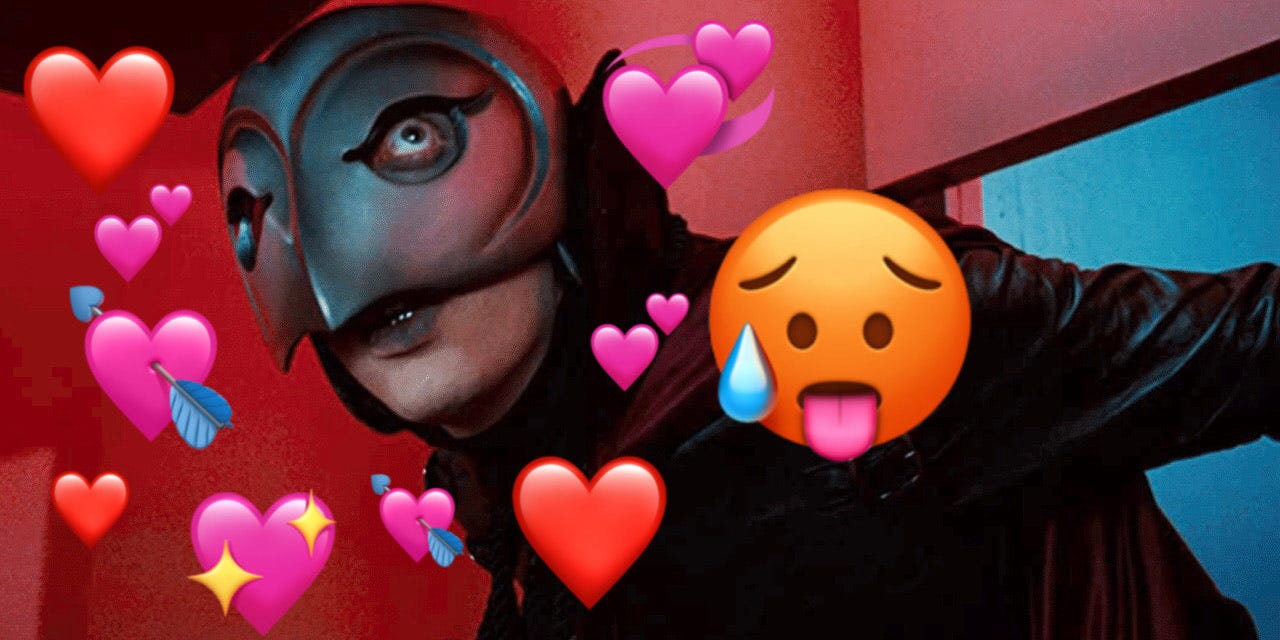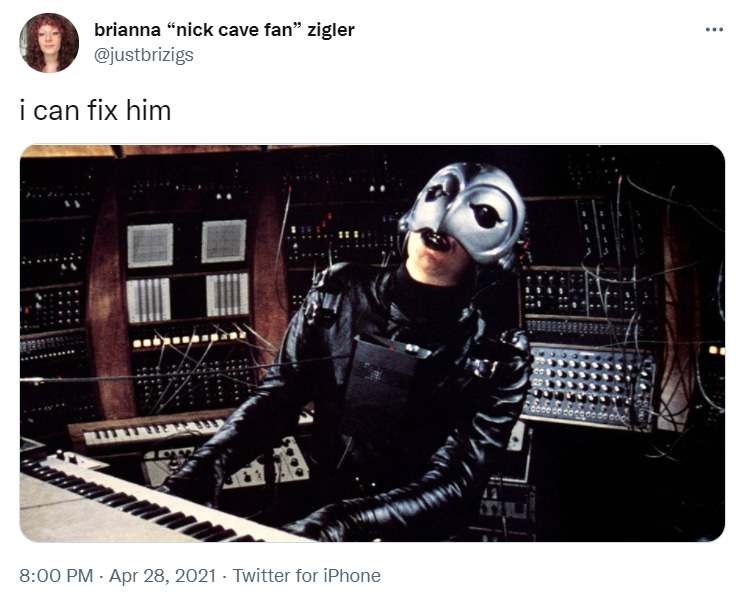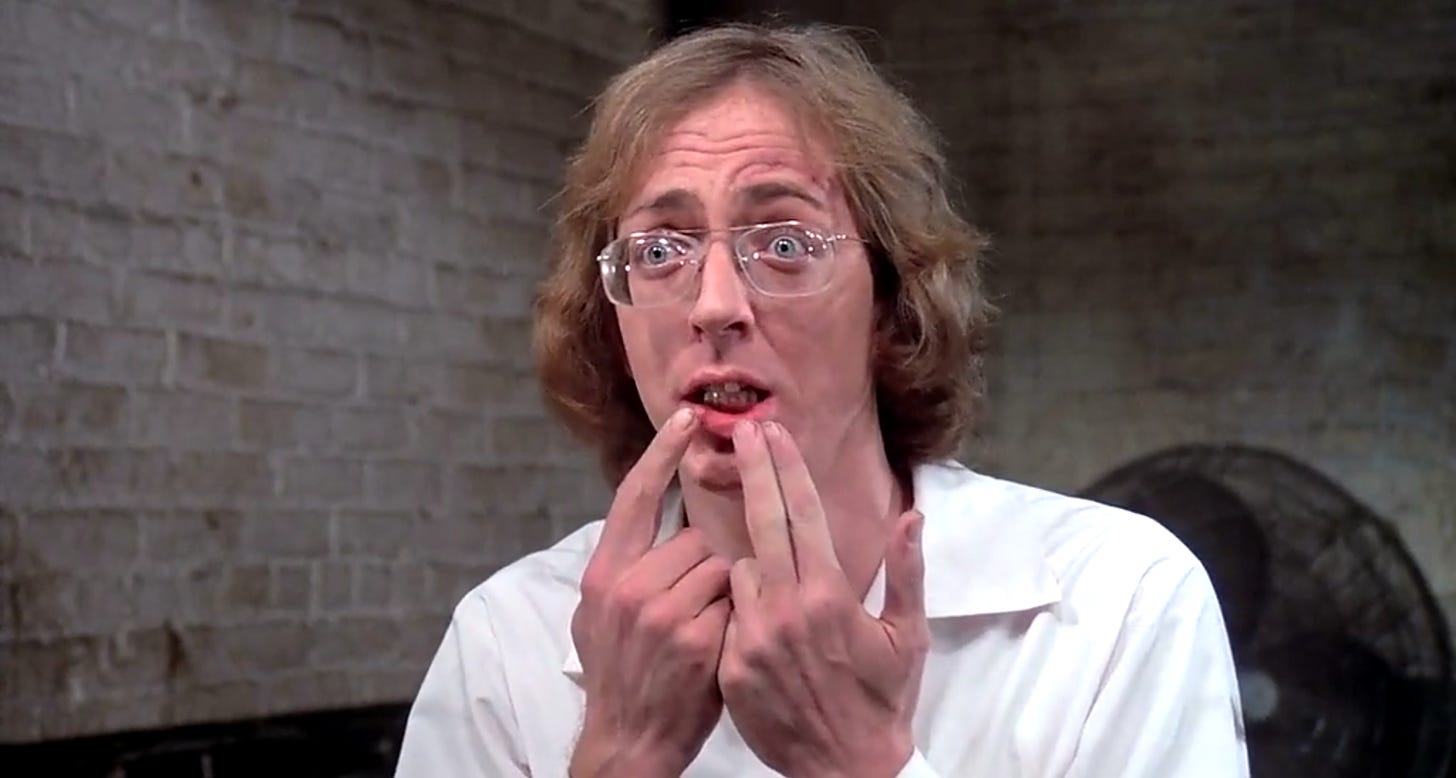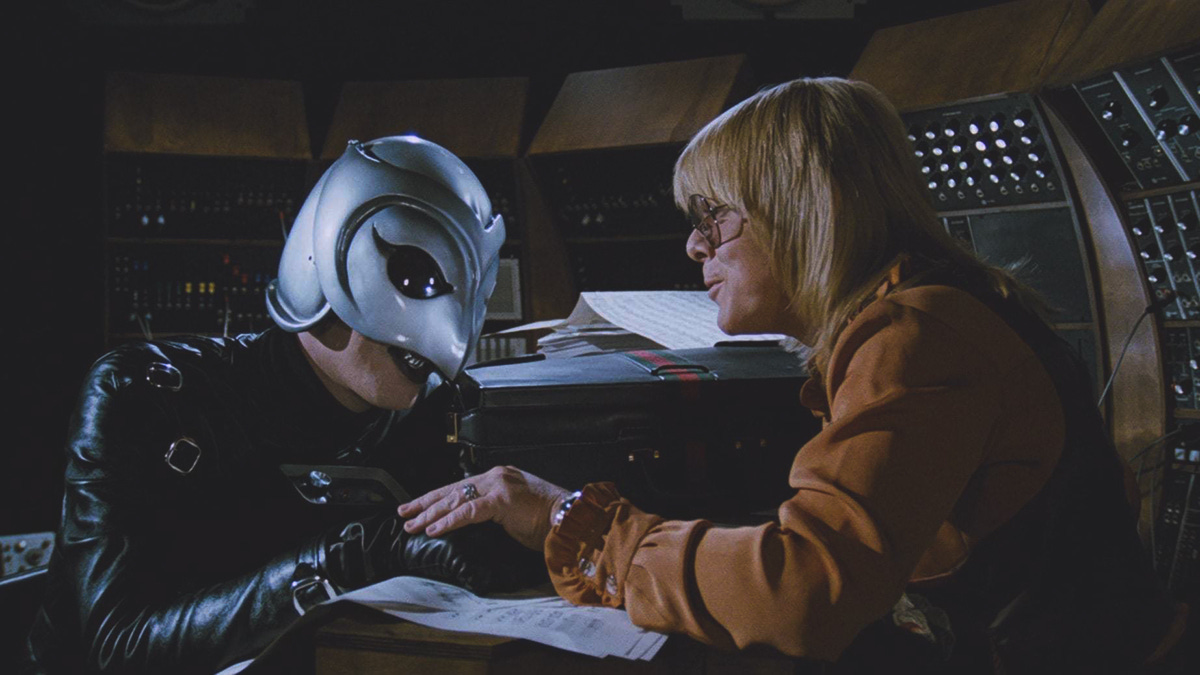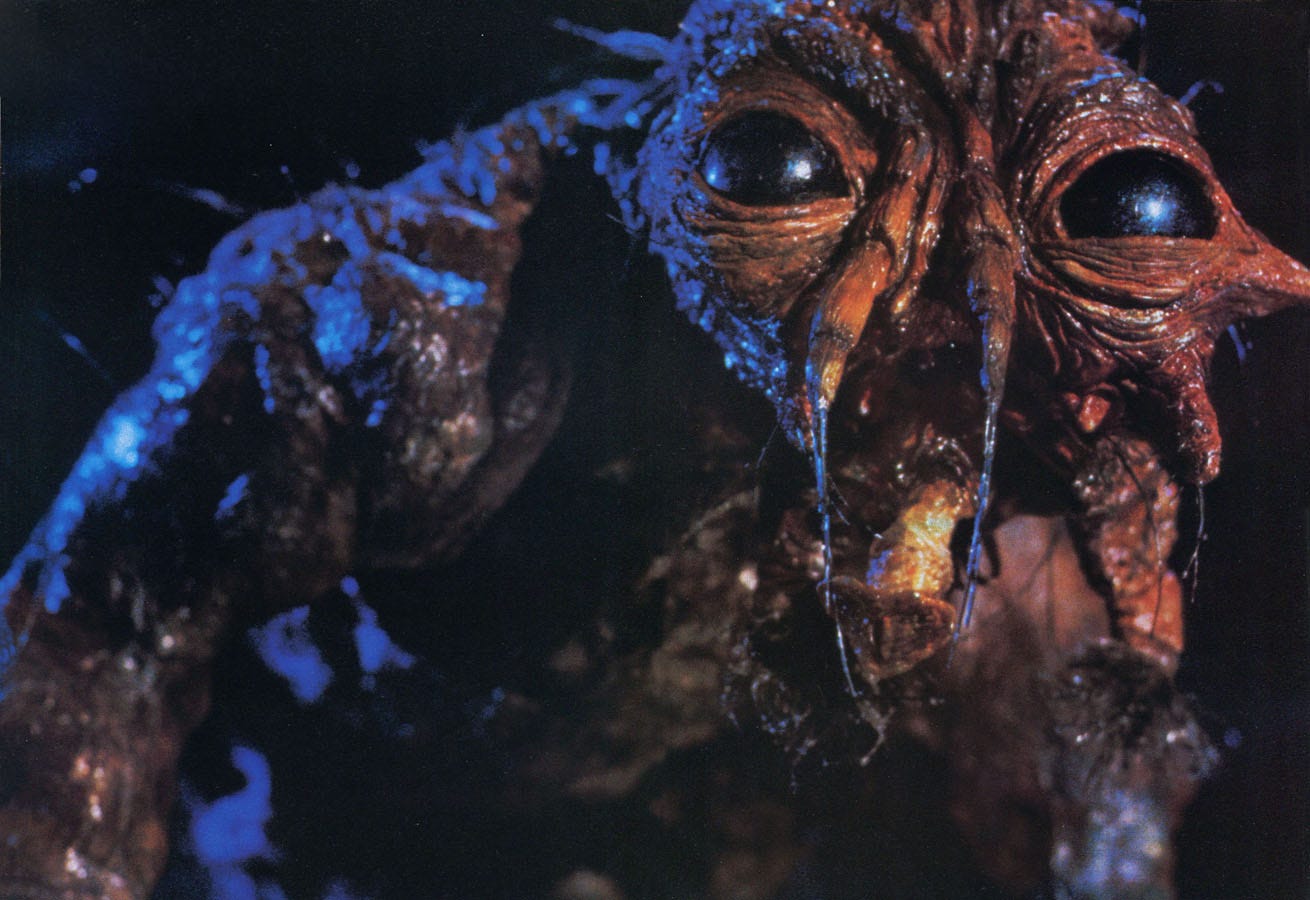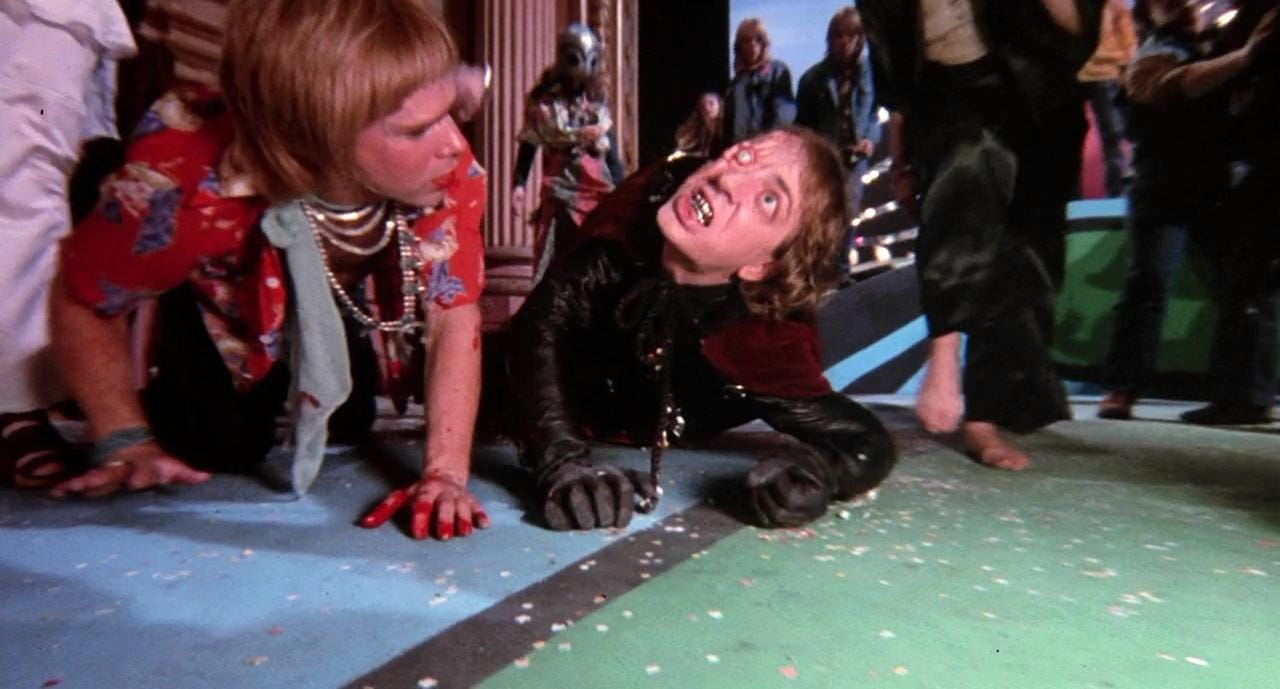I'm Gonna F*** the Phantom of the Paradise
He sold his soul for rock 'n' roll.... yeah, that's hot
In 1974, two years before his adaptation of Stephen King’s novel Carrie would push him into mainstream success, trailblazer of pervy freak cinema Brian De Palma wrote and directed an indulgent, hedonistic rock opera movie musical called Phantom of the Paradise. Though a commercial and critical flop at the time (except, uncannily, in Winnipeg, Manitoba and Paris), the low budget, independently-produced passion project has developed an increasingly avid cult following in the nearly 50 years since it was released. Ardent supporters like directors Edgar Wright and Guillermo del Toro are eager to sing its praises to new recruits (and get the film in front of new eyes, as well).
An eccentric pastiche of homage in-line with the rest of De Palma’s work, Phantom of the Paradise throws stuff like Faust, The Phantom of the Opera, The Picture of Dorian Grey, The Abominable Dr. Phibes, Touch of Evil, and Psycho into a pop cultural food processor bearing a concoction as lurid and excessive as it sounds it would be. It’s also quite brilliant and utterly its own. The film wears its influences on its sleeve — never using them as a crutch, mind you, but as a jumping off point to create something truly original.
However, what I could not shake in the aftermath of my first watch of Phantom of the Paradise — somehow already a full two years ago, after which I described the film on Letterboxd as “quite ridiculous” — was not the elaborate production design courtesy of the prolific Jack Fisk, nor the infectious, Oscar-nominated score from legendary songwriter and the film’s co-lead, Paul Williams. Nor was it the striking color palette of the cinematography (Larry Pizer) or gaudy costuming (Rosanna Norton). No, it was that the titular Phantom of the titular Paradise is kind of hot. Like, extremely hot actually.
Phantom of the Paradise follows songwriter Winslow Leech (William Finley), whose efforts to get his Faust-inspired cantata in front of the eyes of revered pop producer and head of music label Death Records, Swan (Williams), are thwarted by Swan himself. Swan steals Winslow’s cantata under the guise of wanting to produce it, so that he may use the cantata to open his prestigious new concert hall, “The Paradise,” without the insistent, geeky Winslow attached. After Swan has Winslow framed for drug possession and thrown in jail for life to keep him at bay (a stint during which all of his teeth are forcibly removed and replaced with metal fillings, as part of some masochistic “program” sponsored by Swan), Winslow breaks free in a fit of rage upon hearing his Faustian child being performed by airy pop group, The Juicy Fruits, on the radio.
When he makes his way back to the Death Records studio in an effort to enact revenge upon Swan, his face and vocal chords are mangled after getting caught in a record presser. Now reported to be dead after falling into the East River, the deranged, deformed Winslow stealthily returns to take up residence in the rafters of the Paradise as a homicidal, mask-donning specter. It is there that he makes an otherworldly deal with Swan to rewrite his cantata on his own terms for his unrequited love interest: a sultry-voiced singer named Phoenix (Jessica Harper), who is determined to become a performer for the Paradise. But Swan — vain, two-timing, and revealed to have literally made a deal with the Devil some time ago — has other, far more nefarious designs for Winslow’s music, for Phoenix and, eventually, for the Paradise itself.
The story of the well-meaning guy who befalls transformation into hideous beast is nothing new. Typically, these stories have centered on not just previously normal guys, but awkward nerds and/or geniuses. Occasionally, these men’s transformations are the result of their own scientific work gone too far, something something hubris something something the duality of human nature — as with The Fly, Dr. Jekyll and Mr. Hyde, From Beyond, and The Incredible Hulk — or sometimes it’s simply a case of being in the wrong place at the wrong time — like in The Toxic Avenger, An American Werewolf in London, and District 9. Such is the case for poor Winslow Leech, both a dork and a songwriting genius, his devolution caused not from hubris but from his own blind faith in the false morality of the music industry.
However, more often than not, these transformations are largely a net negative, and occasionally result in death (as is the case for poor Winslow/Phantom). Or, even if the transformation becomes beneficial in instances of heroism, the men still remain decidedly not hot. Monsters are often sexy, yes, as the internet has been wont to explain at length over the years. But the Incredible Hulk is not sexy. The Toxic Avenger is not sexy. The Brundlefly is not sexy, despite The Fly being, as with the majority of Cronenberg’s work, a decidedly horny film (and despite Brundlefly’s inclusion on the above linked “Hot Movie Monsters” Buzzfeed list, which nonsensically includes the Pale Man from Pan’s Labyrinth as well).
The Phantom of the Paradise is also a horny film. This is including but not limited to the fact that the entire Faust musical was written as a product of the Phantom’s undying yearning for Phoenix, one scene entails the Phantom watching in on Phoenix and Swan make love, and there is quite nearly an all-girl orgy. Every line that Paul Williams reads manages to come across as sexually loaded. Yet the Phantom remains noticeably absent from these inane “Hottest Monsters” lists, many of which include hot actors largely un-monsterfied — like Megan Fox as Jennifer Check in Jennifer’s Body — as a cop-out.
Winslow Leech, with his metamorphosis from ungainly, bespectacled geek who dons glasses lens as thick as my big toe, into brooding, lovesick, silver-toothed freak who “sells his soul for rock ‘n’ roll,” wears black lipstick and eyeliner, and pains over art for art’s sake, embodies the kind of shit girls go crazy for. It’s also a sort of perversion of the classic nerd makeover trope, Winslow’s transformation inexplicably curing him of his near-sightedness the same way that a haircut did for Rachael Leigh Cook in She’s All That. The Phantom also looks to be well over six feet tall. Just an observation.
But the Phantom is, ultimately, a tragic anti-hero, and one of the hottest archetypes dating back millions of years is the tall, dark, tormented artist. Girls love bad guys who are, at their core, misunderstood and sensitive. It’s why Phoenix is a fucking fool for rejecting the Phantom’s earnest advances when he tries to warn her about falling under the sinister spell of Swan — something that nearly leads to Phoenix’s demise, and fully leads to the Phantom’s. Not me, though. I’m different. You see, I would never have scorned the Phantom like that. I admire artistic integrity, and I also admire (in another, different way) weird-looking guys over six feet tall. All I’m saying is that, similarly to Mark Wahlberg’s comments about if he had been on one of the planes that crashed into the World Trade Center on 9/11, if it were me in Phantom of the Paradise, it wouldn’t have gone down like it did.*




